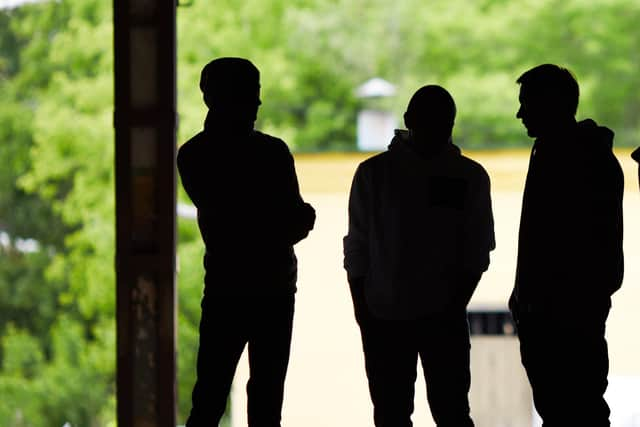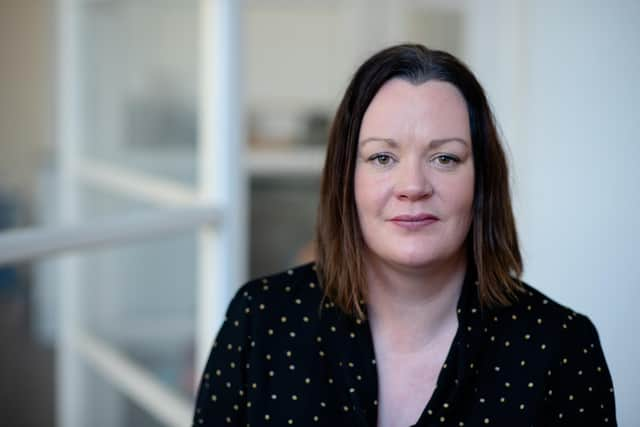Children's hearings shake-up could make things 'worse' for victims, charity warns
A major shake up to Scotland’s children’s hearing system designed to prevent young people from appearing in the adult courts system could end up exacerbating the challenges faced by victims, a leading charity has warned.
Legislation currently progressing through Holyrood proposes increasing the age at which children can be referred to the hearing system for care, protection, and offence grounds. Supporters of the change argue it would cut reoffending rates and bring an end to the placement of under 18s in young offenders institutions.
Advertisement
Hide AdAdvertisement
Hide AdHowever, Victim Support Scotland (VSS) has expressed concern that the new law could lead to an “imbalance of rights,” pointing to longstanding issues surrounding the support available to victims in cases that are dealt with through the hearings system.
The Children (Care and Justice) (Scotland) Bill is central to ministers’ aims of responding to The Promise, a far-reaching review of the care system published by the Independent Care Review in 2020. It found that many care-experienced young people were dealt with by a “fractured, bureaucratic, and unfeeling” system, and warned that placing 16 and 17 year-olds in prison-like settings was “deeply inappropriate.”
The legislation, currently at stage two in the Scottish Parliament, would change the definition of ‘child’ so as to include 16 and 17 year-olds, in line with the United Nations Convention on the Rights of Children (UNCRC), which says that all people under age 18 are children.
While the Procurator Fiscal would retain the discretion to prosecute children and young people in court, following guidelines set by the Lord Advocate, ministers say the bill is aligned with the incorporation of the UNCRC into domestic law, and would ensure that children’s experiences of the care and justice systems occurs in “age-appropriate systems and settings.”
But together with VSS, parents of children who have been the victims of crime by young people say that there is a risk that an increased volume of serious cases being dealt with by the children’s hearing system could exacerbate a lack of information, a lack of access to support, and significant challenges surrounding safety planning for victims.


Kate Wallace, chief executive of VSS, said the new bill should ensure that the voices of victims are taken into account equally. She told BBC Scotland: “We are concerned that there is an imbalance of rights. Victims are entitled to certain things and we see it as a problem at the moment that those rights are not balanced when it is a child who has harmed someone else.
“Their right to privacy is seen as being paramount and that is why victims and their families are not being given information about the case. This is already an existing problem that we have been raising for quite some time.
“As it stands at the moment this bill does not address the challenges that already exist and our concern is that it is going to make those worse as it will apply to a wider group of children, and that will have an impact on more victims.”
Advertisement
Hide AdAdvertisement
Hide AdOne father, whose son was seriously assaulted by a group of teenage boys, told VSS that his family had to “fight for the police to take a statement,” and that they were denied information about the outcome of a children’s hearing due to data protection.


He said: “I don’t think the parents of those who caused the harm understand how significant this was, just ‘kids fights’. If I was able to sit in front of them in some forum such as a meeting between parents and tell them the impact, say these are the pictures of my son after the attack. If we’d been able to get the point across to some of the parents, they might have come away from it and pulled their son aside.
“Not one of the young people who took part in the assault has become a better person, and they continue to be involved with criminal activity. I’ve shown the police messages that they openly send on social media, but nothing seems to be acted on.”
He added: “I have no doubt that this law will be brought in and they will see figures of violence rise. If these people making these decisions had been in the position we were in, they wouldn’t be contemplating doing this.”
Other proposals in the bill include tighter regulation for cross-border placements to ensure that these happen only in exceptional cases where any move is judged as being in a child’s best interests. It would also extend the presumption of anonymity of all children, including victims and witnesses, and those who have caused harm.
Last summer, MSPs on Holyrood’s education, children and young people committee gave their backing to the new law, but said the government had to provide more details on costs, and stressed the need for training for panel members in children’s hearings given the potential increase in referrals, including those involving more serious offences.
A spokeswoman for the Scottish Government said ministers were working with stakeholders, including VSS, on measures to improve victim support and information sharing arrangements ahead of the next stage of the bill.
She added: “This bill aims to end the placement of under 18s in young offenders institutions, with secure accommodation being the normal place of detention instead. The decision on whether to detain a child remains with the independent judiciary. On turning 18, young people who have a significant part of their sentence still to serve will be transferred to prison.”